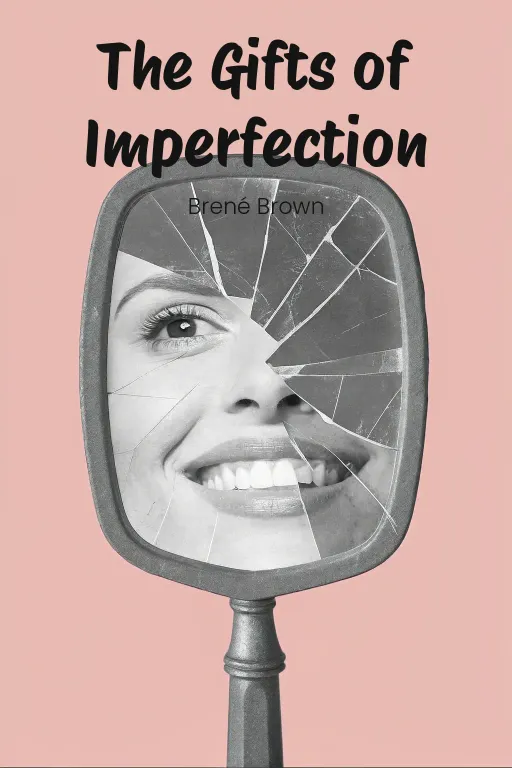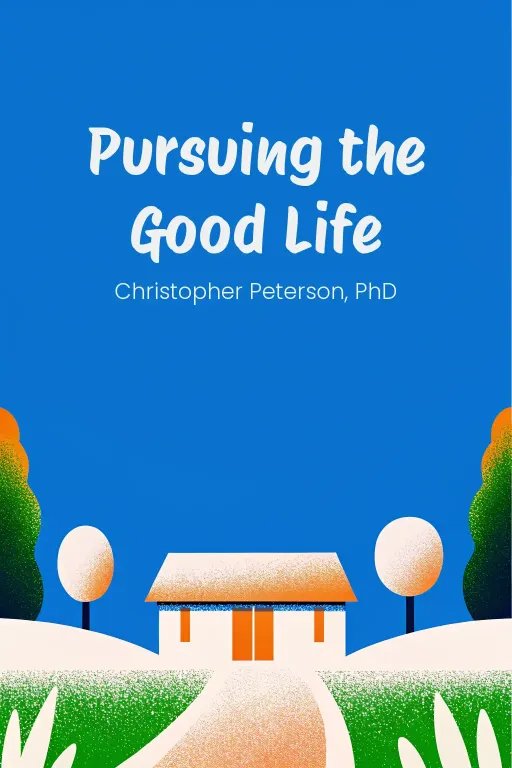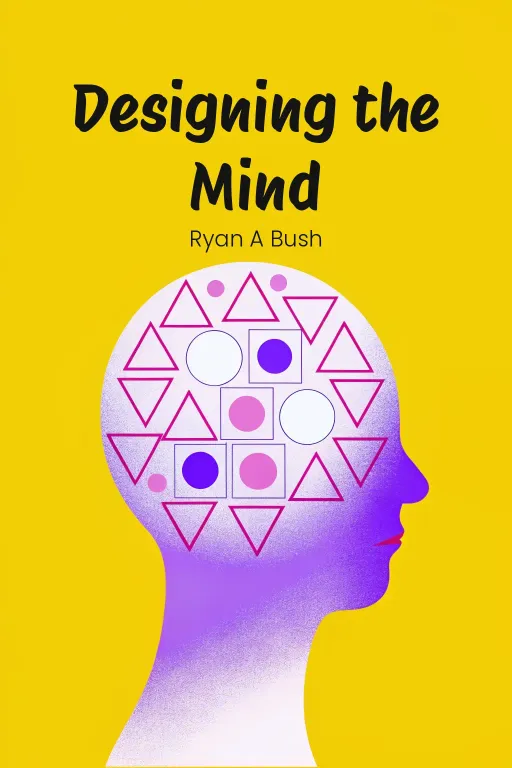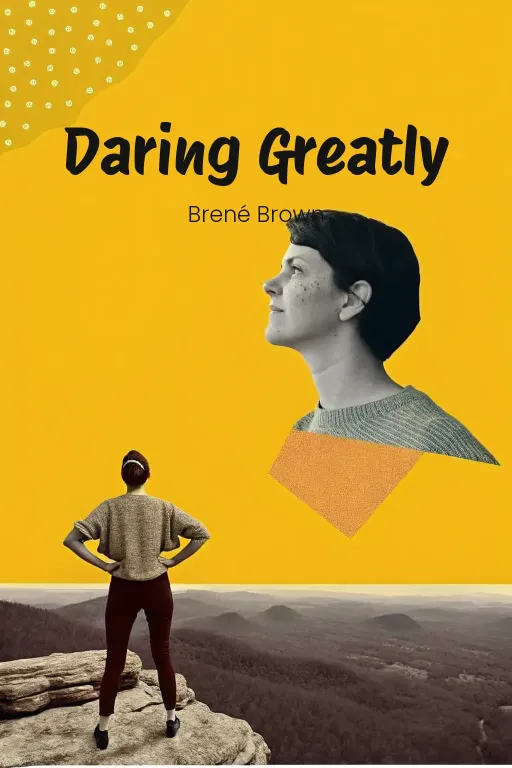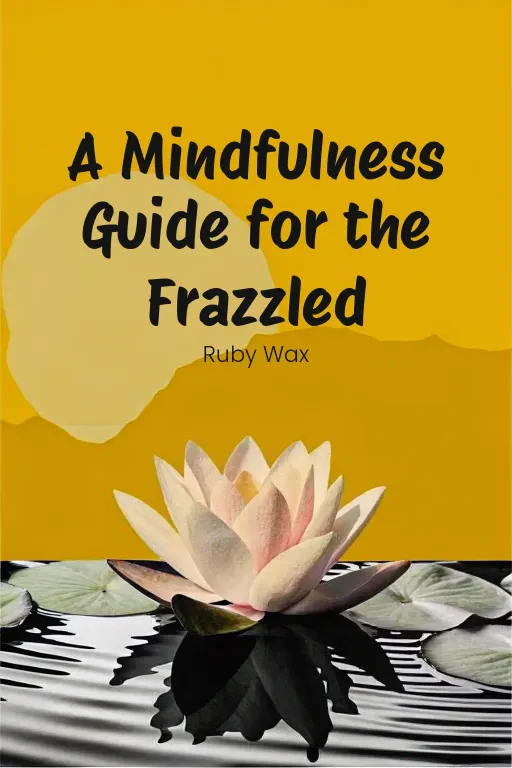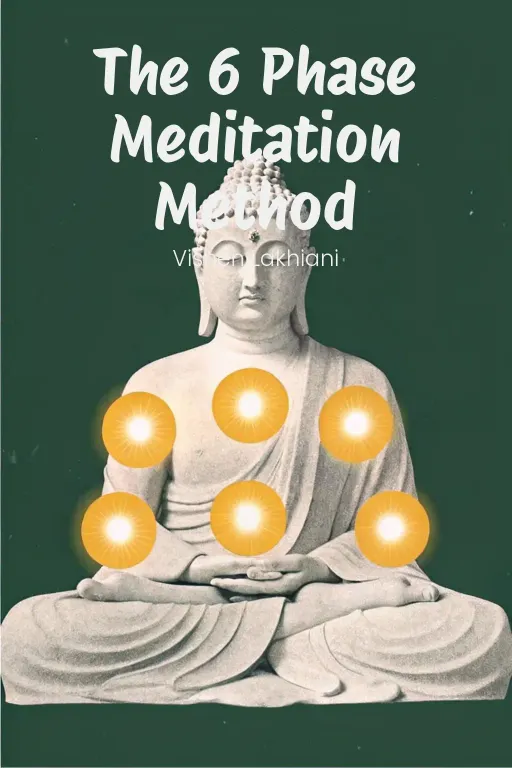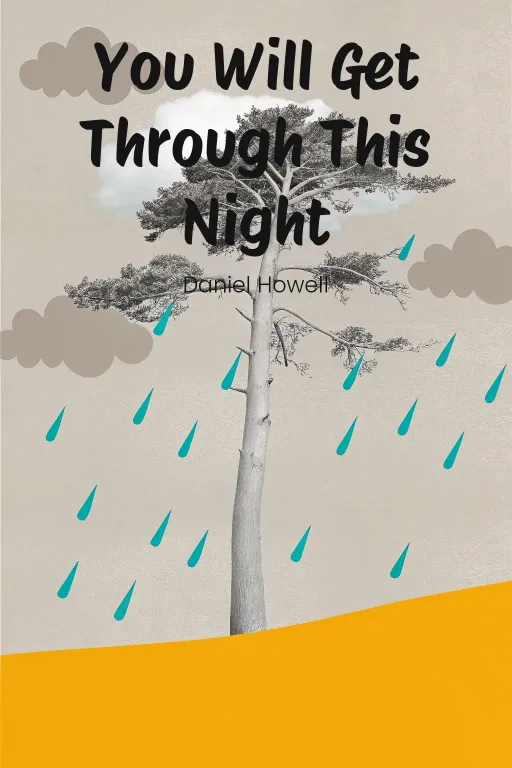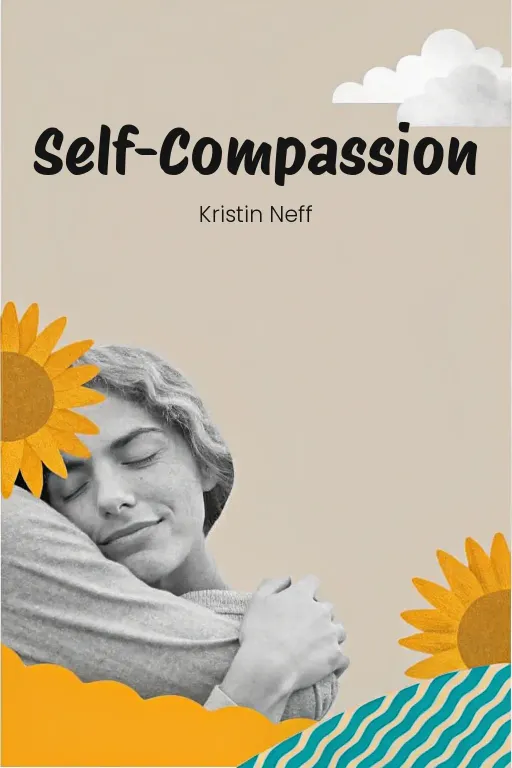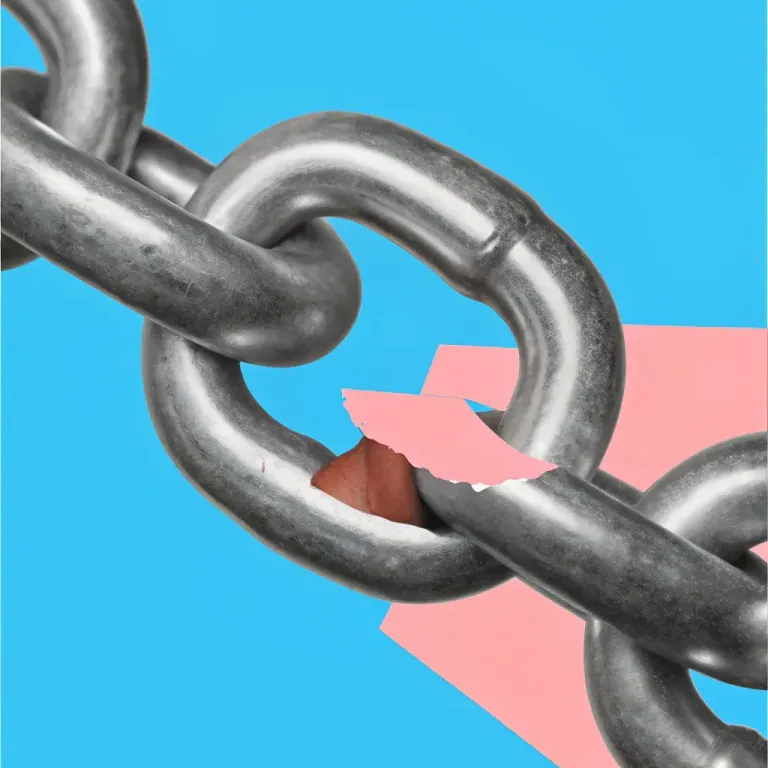
Find Your Missing Piece
Podcast by The Mindful Minute with Autumn and Rachel
Uncovering the Real Causes of Depression – and the Unexpected Solutions
Introduction
Part 1
Autumn: Hey everyone, welcome to the show! So, let me ask you this: Ever feel like something's missing, even when things seem... okay? That nagging feeling you just can't shake, no matter what you try? Rachel: Yeah, I know that feeling. And what if, and hear me out, what if the problem isn't you? What if it's your job, your neighborhood, the whole setup of modern life? Autumn: Exactly! That's the idea Johann Hari explores in Lost Connections. He sort of turns the whole depression and anxiety thing on its head. Instead of blaming it on brain chemistry alone, he looks at how disconnected we are. You know, from meaningful work, real friends, even nature. He argues that this disconnection is fueling the mental health issues we're all dealing with. Rachel: Right, and it's not all bad news, is it? Hari doesn't just point fingers. He also offers solutions, like universal basic income or building stronger local communities – big ideas to help us find purpose and belonging again. Autumn: So today, we're breaking it down into three parts. First, we'll look at Hari's nine causes of disconnection. Think of it as uncovering the hidden problems in the way we live now. Rachel: Then, we'll talk solutions. How can reconnecting with work, nature, and, most importantly, people actually change our mental health and give us a sense of meaning? Autumn: And finally, we'll zoom out and look at how some bigger policy changes could create a more connected, mentally healthy society. Rachel: So, a little bit of diagnosing, a whole lot of prescribing, and hopefully a good dose of optimism. Let's dive in.
Root Causes of Depression and Anxiety
Part 2
Autumn: Okay, so let's dive in. Hari starts by “really” challenging the story a lot of us have always believed, you know? The one about depression and anxiety being caused by chemical imbalances in the brain. It's a simple explanation, sure, but it completely overlooks so many other factors that “truly” impact our mental well-being. Rachel: Exactly, that simple solution, "Oh, you're low on serotonin? Here's a pill." Hari makes it clear that this isn’t just an oversimplification. It’s a narrative that was manufactured and then sold to us, largely by—you guessed it—pharmaceutical companies. Autumn: Yep. And he uses Irving Kirsch’s research to show just how flimsy the evidence for this theory actually is. Kirsch looked at both published and unpublished drug trials and found that the effectiveness of many antidepressants was… well, let's just say it wasn't amazing. In reality, the improvement you got from those antidepressants was often pretty minimal. It was often barely better than what you’d experience just from getting enough sleep. Rachel: Honestly, that's startling, isn't it? I mean, we're talking about a $15 billion market for antidepressants. And the data Hari presents suggests they often aren’t that effective. I just comes across as just symbolic efforts. Autumn: Right! Plus, when we focus only on the biology, we completely miss the bigger picture, the societal context, you know? Hari raises a “really” important point: if antidepressants were really the answer, why are depression and anxiety rates still climbing, even as more and more people are prescribed them? Rachel: Exactly. And that's where his whole argument kind of shifts, right? Instead of seeing depression as some kind of internal hardware malfunction, Hari reframes it as a response to the world around us. It’s like… seeing a fever not as the disease itself, but rather as a symptom of an infection. Autumn: And a “really” powerful example he uses to explain this is the link—or, “really”, the disconnection—between mental health and our jobs. I mean, work should be a source of meaning for many people, but Gallup found that it's actually a source of disengagement for 87% of workers. Rachel: 87%? That's a massive number. So basically, most people are waking up and going to jobs they honestly just don’t care about, you know? Just going through the motions which is totally depressing... Autumn: Totally! And Hari explores why that might be happening. He brings up Michael Marmot’s Whitehall Studies, which found a “really” strong correlation between job autonomy and mental health. Basically, the less control you have over how you do your job, the worse your health outcomes—both physically and mentally. In fact, a lack of autonomy at work was found to be as harmful as smoking. Rachel: Just think about that for a second. A toxic boss or a micromanaging environment could be as bad for your health as smoking a pack of cigarettes a day. And yet, workplaces that prioritize control and purpose are the exception, not the norm. Autumn: And Hari highlights this through a story about a man he calls Joe, who spent years working in a factory painting vehicles. He was financially stable, sure, but completely unfulfilled. His work felt meaningless, and that lack of purpose led to disengagement and heavy drinking. It’s a powerful reminder that work isn’t just about a paycheck. It’s about contributing to something bigger than yourself. Rachel: But isn’t it true that for most people, their jobs just… aren’t meaningful? I mean, not everyone can be doing something obviously impactful, like being a firefighter or a teacher. So, how does Hari address that? Because Joe’s story is sad, but it kind of feels like he's more the rule than the exception? Autumn: Well, Hari argues that even in jobs that seem kind of monotonous, there's still room to create more connection and engagement. For instance, cooperative models, where workers share decision-making and profits, can give people that sense of purpose that's missing. He talks about worker-owned companies, which offer a glimpse of what's possible, even if they're not super common. Rachel: Okay, but co-ops alone aren’t going to magically fix entire industries. Isn’t this where Hari’s broader point comes in? That we need big, systemic changes, not just small fixes, to address the ways work has become so alienating? Autumn: Absolutely. And that call for systemic change becomes even clearer when Hari talks about another source of disconnection: loneliness. In many ways, our jobs are just one piece of a bigger picture of isolation. Rachel: Ah, loneliness. The great paradox of the 21st century: we’ve never been more “connected,” yet people are feeling lonelier than ever. Hari draws on John Cacioppo’s research here, right? Autumn: Exactly. Cacioppo’s experiments showed that loneliness triggers the same stress responses in the body as if we were facing a physical threat. Elevated cortisol, inflammation—it’s basically a slow-burning stress bomb going off in your system. Rachel: And, again, Hari connects this back to society. He points out how loneliness has crept into our lives over decades, with things like urban planning and technology playing a role. Robert Putnam’s Bowling Alone is a classic example, right? The shift away from community activities, like bowling leagues, towards more individual things, “really” shows how we've become more isolated as a culture. Autumn: And Hari doesn’t let technology off the hook, either. He argues that social media is this double-edged sword. It promises connection, but it can often leave people feeling more inadequate and more excluded. Rachel: It's like the digital equivalent of those appetite suppressants. You’re getting these little shallow interactions online, but you're still longing for those real, meaningful relationships in the real world. Autumn: Exactly! And that hunger for connection is about more than just emotional comfort. Hari shows that it's directly linked to the mental health crisis we're seeing. The increase in loneliness mirrors the spikes in depression and even suicide rates, which suggests that our need for real relationships is as basic as our need for food or shelter. Rachel: Which brings us to one of Hari’s most powerful points: how experiences from our past—especially childhood traumas—can make all of this so much worse. If these societal disconnections are like external wounds, then unresolved trauma is like an internal scar that makes it harder to heal. So, let's talk about the ACE study here.
Reconnection as a Holistic Antidote
Part 3
Autumn: So, this “really” reframes the issue, doesn't it? It's less about individual failings and more about the systems around us. That leads right into the solution: reconnection. Johann Hari doesn't just point out the problem; he pushes us to actively rebuild those connections across the board. And it's not just surface-level stuff. We're talking everything from personal practices like mindfulness to community programs and even complete systemic changes, like how we structure our workplaces. Rachel: Exactly, it's a structural overhaul, not just a patch. Let's take community as an example. Everyone can relate to that, right? Hari's example of the Kotti neighborhood in Berlin is a great one, showing how human connection can lead to both personal recovery and societal change. Autumn: Definitely. So, Kotti was facing rising rents and all sorts of socio-economic pressures. Things came to a head when an elderly woman, Nuriye, posted this heartbreaking note saying she'd take her own life if she was evicted. But instead of ignoring it, her neighbors stepped up in a huge way. Rachel: Right, and I mean “really” stepped up—not just a "let's chat over tea" kind of thing. They built barricades, they protested, and they made the issue of rent hikes personal by focusing their movement on Nuriye. It sounds like something out of a movie. Autumn: It does, but the real power of the story is the transformation that happened on every level. Neighbors who were strangers suddenly became allies. And over time, they got real results, like a rent freeze for the community. But Hari points out that the biggest win wasn't just economic—it was personal. Loneliness turned into solidarity. Nuriye, who was at her breaking point, suddenly had people who cared about her. Rachel: It's a great example of how systemic problems, like housing, impact individual well-being. But let me play devil's advocate for a second – is Kotti's success replicable? I mean, it worked because everyone was feeling the same pinch. What about places where people don't have that shared pressure to unite? Autumn: That's a fair question, but that is kind of Hari's point, though. Most people do share struggles, even if they don't see it. Whether it’s affordable housing, healthcare, or even just wanting connections, the potential is there. Kotti proves that we need certain…well, catalysts. These incidents can encourage people to bridge the gap. Rachel: And it's not only about showing up to a protest. Hari builds on this with another example: workplace reconnection, which seems way more scalable. That's where Baltimore Bicycle Works comes in. It sounds like the cure for the soulless corporate jobs most of us are stuck in. Autumn: For sure. So, Baltimore Bicycle Works is run as a cooperative. That means all the workers – and not just the owners or managers – make decisions together and share the profits equally. Hari uses this to show off how employees in traditional jobs often feel dehumanized and trapped. Autonomy and feeling valued leads to improvement in mental health, just like Michael Marmot's findings in the Whitehall Studies. Rachel: And here's the thing – it's not just a nice idea. Josh, one of the founders, used to work in a standard, toxic bike shop before he was like "Enough." He wanted a place where every team member mattered and had a say. Autumn: Yeah, exactly! And the results speak for themselves. People like Alex Ticu, who previously felt unfulfilled in his traditional jobs, found purpose at Baltimore Bicycle Works. Employees contribute at all levels, from maintenance to financial planning, which fosters good professional and emotional investments. Rachel: But let's be real. Not every job or workplace can become a co-op overnight. I mean, is Hari suggesting this model is a catch-all solution, or just an inspirational thing? Autumn: More the latter. He knows the limitations, but makes the point that even small steps towards independence or shared decision-making can make a big difference. It is about reworking work cultures to prioritize human needs, recognition, control, and purpose; over pure profit. Rachel: Okay, let's switch gears here. Kotti is about solidarity, Baltimore Bicycle Works is about purpose in work, so how does Hari take a different-but-complementary approach, which is social prescribing: reconnecting people with their communities? The Bromley-by-Bow Center is a fascinating place for that. Autumn: It “really” is. Bromley-by-Bow is a health center, but it's unlike most clinics. Instead of just relying on medication, they focus on getting people involved in community activities. Lisa Cunningham's story “really” shows how great it is. Rachel: She's the one who turned "Dog Shit Alley" into a garden, right? <Laughs> That alone is worth a round of applause, even only for the new name of the alley. Autumn: Exactly. Now, Lisa, a former mental health nurse herself, had depression so bad she lost touch with her sense of purpose. Social prescribing introduced her to this community garden project, and at first, she wasn't so hopeful. But as she started planting with other volunteers, two things happened: the garden became a lush green space, and Lisa began feeling like she belonged. Rachel: So, it wasn't about dwelling inward — therapy or medication, “really”—it was about working on something outside her. Hari's saying that these activities aren't just distractions; they create strong social bonds that address the isolation driving mental health issues. Autumn: Exactly. And those bonds often create ripple effects, Lisa not only improved her mental health, she also improved her physical health too. Supportive relationships pushed her to get active, and the many other stories demonstrate how connection works as both prevention and a cure. Rachel: So, here's a realistic question: Would something like social prescribing work for everyone? I mean, someone in a rural town might not have the resources that they have in urban area. Is this type of approach scalable? Autumn: Good question. Hari addresses this by emphasizing flexibility. Social prescribing is about tapping into the existing potential of the community. Whether it's a garden, a book club, or an art class, the goal is to create easy ways for people to reconnect without lots of funding or infrastructure. Rachel: Fair enough. And on the topic of reconnection, Hari gets even more fundamental: nature.
Systemic and Policy-Level Solutions
Part 4
Autumn: So, after delving into ways we can reconnect as individuals and communities, it's only natural to talk about larger, systemic solutions that target the underlying causes. Johann Hari makes a “really” convincing argument that these kinds of structural changes – policies and societal reforms – are crucial for “really” tackling the mental health crisis at its core. This final part of our discussion broadens the scope to the societal and policy levels, weaving together those individual and community solutions into a cohesive vision for systemic change. Rachel: Okay, let's zoom out to the big picture. Let's kick things off with Universal Basic Income – or UBI, as most people call it. It's a pretty radical idea: giving everyone a guaranteed monthly income with no strings attached. Sounds a bit utopian, right? But Hari thinks it's more than just a handout, that it could be a game-changer for mental well-being. What do you reckon? Autumn: I think he's onto something. UBI “really” aims at a fundamental cause of disconnection: financial insecurity. Hari mentions the Dauphin experiment in Manitoba – about as close to a real-world UBI trial as we've seen. From ’74 to ’79, every single person in Dauphin had a guaranteed annual income. And the positive effects “really” echoed throughout the community. Rachel: Hari's so good at making those figures resonate. Hospitalization rates for mental health crises went down by nine percent. That's not just data; that's real people getting support when they need it. And then there's that woman who finally got to go to college because of her UBI payments. She became the first in her family to graduate, improving things for not just her but her entire family, breaking a cycle of poverty. I mean, it's amazing. Autumn: Absolutely. It’s such a powerful story because it illustrates that UBI isn't just about easing immediate financial stress; it's about providing people with the space to dream and make plans. And, remember Evelyn Forget’s findings? She demonstrated that even younger individuals remained in school longer because their families didn't need them to immediately contribute financially. Rachel: Yeah, but let me play devil's advocate here for a second. UBI worked in Dauphin because it was a relatively small town. How do you scale that up to, say, an entire nation? And wouldn't some skeptics say it just creates dependency on government money? Autumn: I think those are fair points, and Hari acknowledges them. He explains that, economically, scaling UBI isn't as impossible as people think it is. Some studies suggest that the money saved from things like fewer healthcare costs and increased productivity could offset a good chunk of the initial investment. Also, regarding dependency, Hari says that UBI doesn’t necessarily breed laziness. It “really” just removes that desperate survival mode, freeing people up to engage in work and activities they actually care about. Rachel: So what we're looking at is a model that challenges the idea of overwork. It's not necessarily about people not working, but more about changing the mindset that our self-worth is linked to how much we work. Autumn: Exactly. Hari says that mental health isn't just an individual struggle or an internal problem. It's deeply impacted by the systems around us. Which leads us to another systemic issue he highlights: the pharmaceutical industry. Rachel: Ah, yes… the uncomfortable truth that a lot of people don't want to hear: that the chemical imbalance theory of depression – the whole serotonin-shortage idea – is, at best, incomplete and, at worst, straight-up misleading. Hari “really” brings out the big guns here, referencing Irving Kirsch’s analysis of both published and unpublished antidepressant studies. Autumn: Exactly. Kirsch discovered that pharmaceutical companies were essentially cherry-picking their data. Trials that didn't show significant improvements with antidepressants were often not published or selectively reported. Meanwhile, lifestyle changes – like getting enough sleep – outperformed the drugs in depression measures like the Hamilton scale. Rachel: It’s crazy when you think about how ingrained antidepressants have become. I mean it’s been drilled into us: “Feeling down? Take a pill.” And yet, as Hari points out, even if these drugs work for some, they don't deal with why we're depressed or anxious in the first place. The real underlying causes – like feeling disconnected from community, work, or purpose – don't just disappear, do they? Autumn: Right! Hari isn’t dismissing the use of medication entirely – he says that some people do find relief with antidepressants. But he does challenge the over-reliance on them, pointing out that it prevents us from addressing what he terms the “Web of Disconnection.” He questions why we're so focused on debating the efficacy of pills when we could be building better systems to prevent emotional distress entirely. Rachel: The metaphor I keep thinking about it is that by Hari himself—it’s like prescribing painkillers for a splinter in foot while you don't remove it. Sure, the painkillers might provide temporary relief, but the underlying problem persists and festers. Autumn: Exactly. Which leads us to the broader systemic changes that Hari advocates for. UBI is one piece of the puzzle. Moving away from an over-reliance on pharmaceuticals is another. He emphasizes that to truly address mental health, we have to reimagine our societal values: prioritizing connection, equity, and meaning. Rachel: It's a radical vision, but, frankly, it feels essential. The world Hari describes—where financial stability, autonomy in work, and quality healthcare are key— doesn't just sound healthier. It actually sounds… possible. If we're all willing to make a change.
Conclusion
Part 5
Autumn: Okay, so, to sum up everything we've discussed about Hari's “Lost Connections”, it's really about a fundamental shift in how we understand depression and anxiety. It's not just about popping pills for a chemical imbalance or trying to “tough it out.” It's about recognizing that these feelings often stem from deeper disconnections in our lives—disconnection from meaningful work, supportive relationships, and even a sense of purpose. Rachel: Right, and the solution he proposes isn't another band-aid fix. It's all about reconnection—whether that's through creating more fulfilling workplaces, implementing social prescribing in healthcare, or even considering big systemic changes like universal basic income. He's pushing us to stop just treating the symptoms and start looking at the root causes within the systems themselves. Autumn: Precisely! And the really empowering thing is that healing isn’t something that just happens on your own. It’s about rebuilding those vital relationships, finding purpose, and pushing for societal changes that prioritize human connection over, say, profits or just making things easier. Rachel: So, here's the big, philosophical question Hari leaves us with: What if we actually designed our lives, and our societies, around connection? That’s a huge challenge, of course, but definitely something worth pondering. Autumn: Absolutely. We've talked about how even small actions—like starting a community garden or joining a co-op—can create real change. Just imagine the possibilities if those small changes started to multiply! For now, maybe the best place to start is just by looking around and asking yourself, "Where am I feeling disconnected? And what's one small step I can take to change that?" Rachel: Yeah, that's a question worth sitting with and really thinking about. Thanks for joining us as we explored “Lost Connections”. Until our next conversation—stay curious, and more importantly, stay connected.


